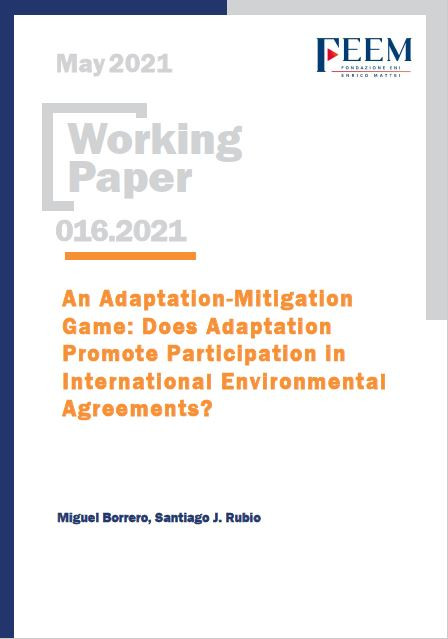An Adaptation-Mitigation Game: Does Adaptation Promote Participation in International Environmental Agreements?

24.05.2021
Miguel Borrero (University of Valencia); Santiago J. Rubio (University of Valencia)
D62, F53, H41, Q54
International Environmental Agreements, Adaptation-Mitigation Game, Vulnerability, Effectiveness of Adaptation, Complete Agreement, Adaptation Agreement
This paper studies how the investment in adaptation can influence the participation in an international environmental agreement (IEA) when countries decide in adaptation before they choose their levels of emissions. Two types of agreements are studied, a complete agreement for which countries coordinate their decisions on adaptation and emissions, and an adaptation agreement for which there is only coordination when countries decide their levels of adaptation. In both cases, we assume that the degree of effectiveness of adaptation is bounded from above, in order words, adaptation can alleviate the environmental problem, but it cannot solve it by itself leading the vulnerability of the country to almost zero. Our results show that the grand coalition could be stable for both types of agreement, but for extremely high degrees of effectiveness of adaptation. If this condition is not satisfied, the model predicts low levels of membership. The standard result of three countries for the complete agreement. For the adaptation agreement participation can be higher than three, but not higher than six countries. In any case, we can conclude that under reasonable values for the degree of effectiveness of adaptation, in our model adaptation does not promote participation in an IEA.
***
Suggested citation: M. Borrero, S. J. Rubio, (2021), ‘An Adaptation-Mitigation Game: Does Adaptation Promote Participation in International Environmental Agreements?’, Nota di Lavoro 16.2021, Milano, Italy: Fondazione Eni Enrico Mattei
